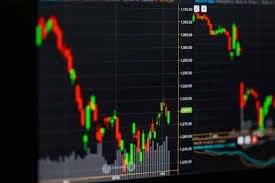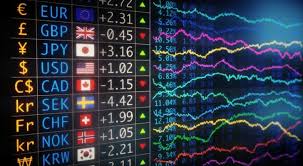

Forex trading has become increasingly popular over the years, attracting traders from all walks of life. To successfully engage in forex trading, the first step is setting up a forex trading account. In this comprehensive guide, we will discuss the different types of forex trading accounts, their features, and essential tips for selecting the right one. Moreover, for in-depth resources, you might want to take a look at forex trading account Trading Brokers.
A forex trading account is a type of account that allows traders to buy and sell currencies in the foreign exchange market. This account is opened with a brokerage firm that provides the necessary platform for trading in the forex market. A trading account allows traders to deposit money and use it to trade various currency pairs while potentially experiencing returns based on their trading strategies and market movements.
There are several types of forex trading accounts available to traders, each designed to cater to different trading styles, risk tolerance, and experience levels. Here are the most common types:
A demo account is a practice account that simulates real trading conditions without the risk of losing real money. It allows traders to test their strategies, familiarize themselves with the trading platform, and gain experience in a risk-free environment. Demo accounts are especially beneficial for beginners who are new to forex trading.
The standard account is the most common type of forex trading account. It typically requires a minimum deposit and allows traders to engage in standard lot sizes. This account type is best suited for traders who have some experience and are ready to trade with real capital. Standard accounts often offer access to leverage, which enables traders to control larger positions than their initial capital would allow.
Mini accounts are designed for smaller traders or those who prefer to trade with a lower risk. They require a smaller initial deposit and allow trading in mini lot sizes rather than standard lots. Mini accounts are a good option for beginners or those looking to test their trading strategies with a limited amount of capital.
A micro account is similar to a mini account, but it typically requires an even smaller deposit. It allows for trading in micro lot sizes and is perfect for beginners who want to dive deeper into forex trading without risking significant capital. This account type enables traders to learn the nuances of forex trading on a smaller scale.

ECN (Electronic Communication Network) accounts provide direct access to the interbank forex market, allowing traders to execute trades with tight spreads and low latency. ECN accounts often charge a commission on trades rather than a spread markup. They are ideal for professional traders or those with high trading volumes who require faster execution and better pricing options.
Selecting the right forex trading account is crucial for a trader’s success. Here are some essential factors to consider:
Your trading style plays a significant role in determining which type of account is best for you. If you are a beginner, a demo or micro account may be suitable. Conversely, experienced traders may benefit from a standard or ECN account.
Different accounts offer varying levels of leverage. High leverage can amplify profits but also increases risk. Consider your risk tolerance before choosing an account based on the available leverage options.
The required minimum deposit can vary widely among different account types and brokers. Ensure you choose an account that fits your budget and trading aspirations.
Be aware of the fees and commissions associated with each account. Some accounts may have higher spreads, while others may charge commissions for trades. Understanding these costs is essential to accurately assess profit margins.
Different brokers offer different platforms and trading tools. Look for accounts that provide robust trading software, analytical tools, educational resources, and customer support to enhance your trading experience.
In conclusion, a forex trading account is your gateway to the dynamic world of currency trading. By understanding the different types of accounts available and what factors to consider when selecting one, you can set yourself up for a successful trading journey. Always remember to conduct thorough research, practice with a demo account if you’re a beginner, and stay informed about market trends and developments. The world of forex trading is vast and offers numerous opportunities, but success often hinges on the right choices and strategies. Good luck!